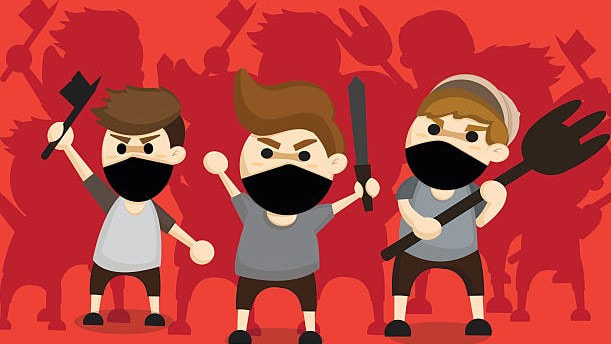|
The Unite the Right event in Charlottesville made its mark on the psyche of the nation in August 2017. For most, it is cemented in their minds as part of national history, the nature of which has already been decisively settled. Those who depended on the MSM narrative have heard the event frequently mischaracterized as a "white nationalist rally," and often used to condemn Trump for supposedly calling Nazis "very fine people." (For a more accurate assessment of Unite the Right, please see our series of articles about the event). Having satisfactorily convinced most Americans of the elite-approved narrative, the Fake News peddlers have moved on to other subjects. Consequently, most people don't know about the Charlottesville saga that continues to play out in the courts. That is unfortunate, because the case not only challenges the official narrative of the contentious event, but also raises important First Amendment issues. On February 21, a decision was issued by the Fourth Circuit in the Kessler vs Charlottesville lawsuit, which event organizer Jason Kessler filed against the city for violating his First Amendment rights by orchestrating conflict in order to justify shutting down Constitutionally protected speech. The "heckler's veto" issue that is central to the case has rarely been raised in U.S. courts. There is a precedent set in the Sixth Circuit from a 2015 case in which a group called the Bible Believers, a group of anti-Islam Evangelicals left unprotected by police, were removed from a Muslim festival in Dearborn when the crowd became violent towards them. In this case, the court decided in favor of the Bible Believers, reasoning that the police could have taken other action that would have allowed the Bible Believers to exercise their rights to free speech. Unfortunately, with regards to Kessler vs Charlottesville, the judge granted the city's motion to dismiss the case. The ruling, which focused heavily on the obligations of police to protect, stated that "plaintiffs did not suffer any violation of an existing constitutional right." Really? As Kessler remarked after the ruling was issued, the rally speakers "never got to say one word in support of the [Robert E. Lee] statue." They will appeal the ruling. It is entirely possible this case could be argued before the Supreme Court. As tensions in this country increase, the right to free speech in potentially volatile situations will become an even more a critical issue. Kessler's persistence in this David-and-Goliath case is laudable. He and his legal team have faced delay tactics, stonewalling of FOIA requests, and adversarial press. They have been harassed with excessive discovery request by some of the Usual Suspects who have also been a thorn in the side of the Trump administration. (He is also a defendant in a civil case stemming from Unite the Right which is expected to begin in the fall of this year.) Despite the disappointing ruling, Kessler remains determined and optimistic. Noting that free speech is the most important issue in dissident politics, he declares that he intends to fight until all legal options are exhausted. Either we will win, or we will learn for certain that the courts will no longer uphold the right to free speech. If so, we must be prepared to make a populist appeal based on the facts of the case - that, he believes, we can win.
1 Comment
|
AuthorThe Carolina Contrarian, Anne Wilson Smith, is the author of Charlottesville Untold: Inside Unite the Right and Robert E. Lee: A History Book for Kids. She is the creator of Reckonin' and has contributed to the Abbeville Institute website and Vdare. She is a soft-spoken Southern belle by day, opinionated writer by night. She loves Jesus, her family, and her hometown. She enjoys floral dresses and acoustic guitar music. You may contact Carolina Contrarian at [email protected]. Archives
April 2024
|

